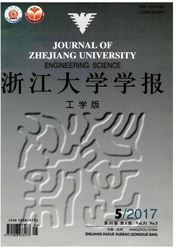

 中文摘要:
中文摘要:
为分析工程中各种导热系统的随机温度变化过程,应用随机振动的首次穿越理论对其进行了研究.计算了随机过程的期望穿阂率,并根据其结果推导出了首次超温的泊松过程模型.对该泊松模型进行了修正,得到了更加符合工程实际情况的窄带过程模型.利用窄带随机过程模型对某一导热系统在一定温度阈值下的首次超温平均时间进行了计算和分析,得到了不同温度阈值、衰减率和固有频率对系统超温时间的影响.对修正前后的两种模型的计算结果进行了比较.结果表明,首次穿越模型能用于预测工程中导热系统材料首次超温的可靠性时间.
 英文摘要:
英文摘要:
The first passage theory of random vibrations was employed to study the stochastic temperature variation of heat conduction systems in engineering. The ratio of expectation crossings of a stochastic process was calculated and used to deduce a Poisson process model of the first passage of temperature threshold. The Poisson model was revised to achieve a narrow band process model, which is more reasonable than the original one. The revised model was adopted to evaluate and analyze the mean first passage time of heat conduction systems at different temperature thresholds, different damping ratios and different intrinsic frequencies. Comparison of the results of two models demonstrated that the first passage model can be used effectively to estimate the lifetime of materials of heat conduction systems in engineering.
 同期刊论文项目
同期刊论文项目
 同项目期刊论文
同项目期刊论文
 期刊信息
期刊信息
